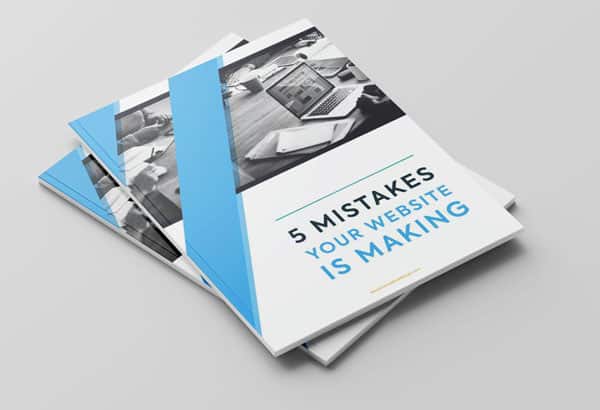2018 was a big year for PPC or Pay-Per-Click Marketing. Google Adwords was re-branded as Google Ads. The change was not all cosmetic. Google Ads was improved with new features, tools, campaign types, and targeting options.
Since branching out to the world of advertising in 2000, Google has leveraged its Internet dominance to generate a staggering US$116.3 Billion in ad revenues in 2018.
The number accounted for 85% of Google’s total revenues in the same year.
Not surprising, other companies saw the success Google had in advertising and followed suit:
- Bing Ads revamped its offering to include new targeting capabilities, the availability of more reports plus other interesting new features.
- Bing Ads collaborated with social media platform LinkedIn to introduce LinkedIn Profile Targeting.
- Amazon’s aggressive push into PPC Marketing as more consumers continue to use its platform to search for more products.
Despite the challenges posed by Bing, Amazon, Facebook, LinkedIn, Twitter, and other PPC Marketing platforms. Google Ads remains the gold standard in the industry.
What Is PPC Marketing?
PPC Marketing is a process where the advertiser – you – pays the agency every time someone clicks on your ad.
The great thing about PPC Marketing is that your ad is placed in the sponsored results section of the Search Engine Results Page (SERP).
For example, you are in the business of selling remote control drones. You decided to use PPC Marketing to post ads on your latest product – remote control drones with high-resolution cameras.
Whenever someone launches a Google search query “remote control drones with high-resolution cameras”, your PPC will appear in the SERP that has all the URLs on the topic.
Thus, with PPC Marketing, the probability is high that your ad will attract a buyer who is genuinely interested in your product.
With PPC Marketing, you can be assured that your ad will be published in full view of targeted customers – those who have a strong intent to purchase your products or services.
Consequently, PPC Marketing can give your website a search ranking boost!
You can read more about PPC Marketing in our article, “SEO vs PPC: Which One Is Better For Your Business?”
The question you must be asking is “Should I invest in PPC Marketing? Will the investment be worth it?”
If you ask the good people at Google, they will tell you, “Yes! By all means, you should invest in PPC Marketing!”
Google has every reason to take a strong stand in favor of PPC Marketing. According to the search engine giant’s 2016 report, advertisers earned an average of $8 for every $1 spent on PPC Marketing.
4 Reasons Why Your PPC Marketing Campaign Is Not Delivering Results
That number should be enough to get your eyes and mouth wide open and give us a call here at Mountaintop Web Design.
However, we would like to emphasize that Google’s reported ROI on PPC Marketing is just an average. There are advertisers who fell short of their goals.
Why is your PPC Marketing campaign falling short of its targets? There are 4 factors that can have a dampening effect on your PPC Marketing campaign.
1. Choice of Keywords Is Too Broad
Similar to online content, your PPC ads have to be optimized. Thus, it is very important to have tightly-focused and precise keyword research.
The keywords that you are using in your PPC ads must match the intent of the target consumer as closely as possible. If your choice of keywords is too broad, your ad will be displayed to a wider or diverse audience many of whom may not be interested in what you are selling.
For example, you are in the business of selling specialized diesel engine pumps. If you used the keywords “Diesel Engine Pump” or “Diesel Fuel Injector Pump” in your ad, it will be placed in SERPs where prospective customers could be looking for just ordinary diesel engine pumps.
However, if you chose “Distributor Fuel Injector Pump” or “Common Rail Fuel Injector Pump”, you would be streamlining the search to consumers who have a need for these specific types of fuel injector pumps.
Thus, the chances of a prospective customer clicking onto your PPC ad will be much higher than if you opted for more generalized keywords.
2. The Message of Your PPC Ad is Disjointed
When creating a PPC ad, your copy must be aligned with the headline and the intent of your target market. Otherwise, the message of your ad will be disjointed and will not resonate with your target market.
Conceptualizing an effective PPC ad is a two-step process. First, the headline you plan to use and the content of the ad copy itself should match or correspond to the keywords you are bidding on.
Second, the message your PPC ad is conveying should provide answers or a clear-cut solution to the needs of your intended market. When a consumer runs an Internet search, he is looking for solutions that can help address a particular problem.
In order to be clicked on, your PPC ad must present itself as a potential solution to the problem or issue that is presently confounding the consumer.
3. Google Gives Your PPC Ad a Low-Quality Score
Google will review your PPC ad and determine your Quality Score or QS. Your score will depend on 2 factors: overall quality and relevance of your ad. Google measures these factors by keeping track of how many people actually click on the ad after it has been displayed on the SERPs.
Essentially, a lower QS means fewer people are clicking on your ad. While Google will measure your QS, it will be up to you if want to implement changes and improve the ad so that more people will click on it.
4. Poorly Designed Website Landing Page
Getting an Internet searcher to click on your ad is one thing. Giving him the best User Experience when he gets to your website landing page is another.
What will the site visitor see when he lands on your page? Will he readily find solutions to his pain points? Will your landing page content provide the answers to his questions?
Your efforts to find a customer do not begin and end with the PPC ad. Likewise, your landing page must be optimized to help increase conversions.

How Much Will It Cost To Run A PPC Marketing Campaign?
In our article, “How To Setup A Low Cost But Effective Digital Marketing Campaign”, we discussed the ways in which you can run a digital marketing campaign that can deliver results without breaking the bank.
PPC Marketing was not included among the best low cost strategies in the article. However, we mentioned PPC Marketing as an option that you can consider especially if you have a larger budget for marketing.
If you are thinking of including PPC Marketing as part of your digital marketing strategy, for the reasons stated at the beginning of this article, Google Ads would be the best platform to launch your ads.
Google Ads uses a bid system whereby you, the advertiser, will put in a maximum bid that you are willing to pay for every click or cost-per-click (CPC) your ad receives.
The rule is simple: the higher your bid the more advantageous the ad placement will be.
According to Google, the average CPC for advertisers in its platform is $1 to $2 on its Search network.
While this reported average CPC may seem attractive, the true cost of your PPC Marketing campaign will depend on 5 factors:
- The competitiveness of your industry.
- The competitiveness of the keywords.
- Your Quality Score (QS).
- The bid of your competitors for the keywords.
- The quality of your competitors’ ads.
Google estimates that small and medium-scale businesses spend an average of $9,000 to $10,000 per month or $108,000 to $120,000 per year on PPC.
According to a study conducted by WebFX, the most expensive keywords come from the following industries:
- Legal
- Financial Services
- Insurance
- Retail
The financial services and insurance industry combined to spend an average of $1.2Billion in PPC ads every year. Amazon, the world’s largest online retailer, averages $50 Million for PPC ads per year.
The WebEx study identified the following keywords as the most expensive:
- San Antonio Car Wreck Attorney – $670.44
- Accident Attorney Riverside CA – $626.90
- Personal Injury Attorney Colorado – $553.08
- Structure Settlements – $539.82
- Austin Drug Rehab – $463.05
78% of the most expensive keywords pertain to the legal industry. A far second is about Water Damage at 8% and coming in third at 6% is insurance. Business Services account for only 1% of the most expensive keywords.
However, putting in the highest bid is just one part of the PPC equation if you want to get the best placement. As previously mentioned, Google will consider your QS to determine the placement position of your ad.
Your QS is calculated based on 3 factors:
- Relevance of your ad to the keywords.
- Click-Through-Rate or CTR which is the number of clicks your ad generates as a proportion of the number of views it gets.
- The quality of your landing page.
Using these 3 variables, Google has come up with is Ad Rank formula:
Ad Rank Formula = (Max CPC bid) x (Your Ad’s QS)
For example, if your maximum CPC bid for a keyword is $1.00 and Google gives your ad a QS of 10, your Ad Rank will be 10.
In an auction, the advertiser who ends up with the highest Ad Rank will be awarded the top advertising spot.
Google calculates the amount the advertiser pays per click with this simple formula:
(Ad rank of the ad below yours) / (Your QS) + $0.01
From the above formula, we can see that your QS will have a big impact on the cost of your PPC Marketing campaign. You can actually spend less and still acquire the top advertising position if Google gives you a high QS.
Conclusion
Google Ads is a good PPC Marketing platform to begin with. One of the biggest advantages of using Google Ads is that it gives you 4 ways to stretch your PPC Marketing budget.
First, Google Ads has a feature that allows you to create daily budgets whereby you can allocate more money to campaigns that are focused on promoting your top selling products.
Second, you can set the time and date that you want your PPC Ad to appear. Thus, you can increase your bids only for specific hours of the week.
Third, Google Ads has an interesting feature called geotargeting which lets you set aside more funding to reach target customers in a specific geographic area such as a neighbourhood or city.
Finally, if you believe most of your customers are living the mobile lifestyle, Google Ads has a device targeting feature which lets you use some of your funding to deliver your PPC ad directly to people using a particular type of mobile device.
Is PPC Marketing worth it? The answer is “Yes” provided the following conditions are met:
- Keyword research is highly-focused and targeted on specific, not broad or generalized keywords.
- The message of the PPC ad copy must be clear; it must resonate with the intent of the Internet searcher and provide solutions to his concerns.
- Likewise, the landing page of your website must be optimized and aligned with the message of your PPC ad copy. It should provide the answers the Internet searcher is looking for.
Your focus should be to come up with a PPC ad that will elicit a high QS from Google. The better your QS, the higher the probability of landing the top advertising spot. You can lower the CTC even if your max bid is not the highest.
Are you ready to add PPC Marketing to your digital marketing toolbox? Give us a call and we can set you on the right track to PPC success! We are ranked as one of the top PPC Agencies according to Design Rush.






